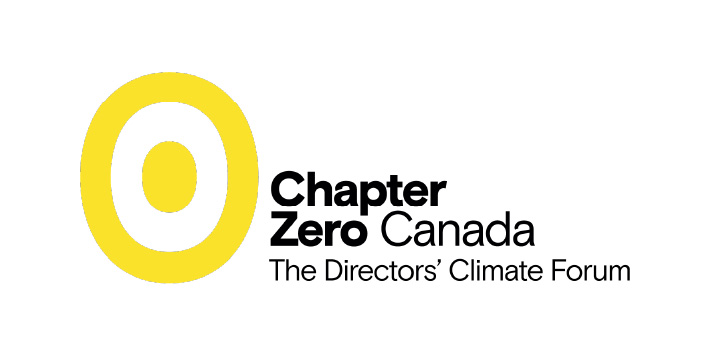Date: 25 March 2021

Host:
Chapter Zero Canada
Panellists:
- Roberto Bocca – Head of Shaping the Future of Energy, Materials and Infrastructure; Member of the Executive Committee, World Economic Forum
- Miranda Hubbs – Director, Nutrien Ltd., PSP Investments, Imperial Oil Ltd. and the Canadian Red Cross
- James Meadowcroft – Professor, School of Public Policy and Administration, Carleton University; Research Director, The Transition Accelerator
Moderator:
Rahul K. Bhardwaj- President and CEO, Institute of Corporate Directors
To act on climate change, conversations about climate change need to be had by everyone – whether it’s a household looking to reduce plastic consumption at home, or a big business in need of decarbonisation. That was the message put forward by the Chapter Zero Canada panel on day three of the CGI Global Summit.
Chapter Zero Canada’s mission is to mobilise the director community to push for further integration of climate matters at board-level strategic decision-making. In order for that to happen, however, climate change conversations have to be normalised and embedded within the framework of typical corporate governance. Boards have to increase their climate literacy to make this a reality.
“For those who haven’t started having the conversation, just put it on the agenda and start having (it),” advised Miranda Hubbs, director of Nutrien Ltd. Of course, those conversations are going to be more edifying if boards are composed of members with relevant experiences and diverse cultures. If the board is committed to long-term learning, those conversations can become robust and far-reaching.
The corporate purpose and vision of the company in a net-zero economy will drive the wheel forward, the panel argued. A sectoral or regional transitioning approach is needed to fast track transformation extending beyond energy transition to multiple sectors and systems.
There are tremendous business opportunities in new markets, products and services that will develop during the transition to a net-zero economy. Collaboration and interactions between businesses, sectors, governments and stakeholders globally will drive the identification of growth opportunities. It is for the boards to observe the changing competitive space and understand how to leverage it to their advantage. Transitioning is about evaluating how businesses will evolve as the world moves towards net-zero as it will affect the whole environment for business and opportunities in the near future.
With the world changing and evolving, business models must follow suit, or at the very least, adapt using risk and opportunity information. And it all starts with with understanding where businesses are and where they could be in the short, mid and long-term future.